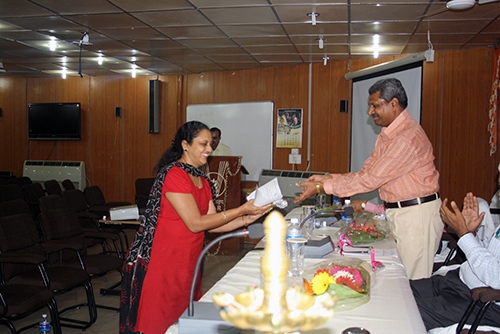 |
 |
||
|
|
|||
 |
 |
||
 |
 |
||
 |
 |
||
 |
 |
||
 |
 |
||
 |
 |
||
|
|
|
||
|
|
|
||
|
|
|
||
|
|
|
||
|
|
|
||
|
|
|
||
|
|
|
||
|
|
|
||
|
|
|
||
|
|
|
||
|
|
|
||
|
|
|
||
|
|
|
||
|
|
|
||
|
|
|
||
|
|
|
||
|
|
|
||
|
|
|
||
|
|
|
||
| News Updates |
Home || Sections || Publications || Agri-info || Staff || Office automation || Photo gallery || Contact
|
National Symposium on Microbial Diversity and its applications in Health, Agriculture and Industry 4th to 5th March 2011
A National Symposium on Microbial Diversity and its applications in Health, Agriculture and Industry was organised by ICAR Research Complex for Goa, Old Goa during 4th to 5th March 2011. Shri Rasik Ravindra, Director, National Centre for Antarctic and Ocean Research, Vasco-da-Gama inaugurated the symposium. Prof. D. K. Arora, Director, National Bureau of Agriculturally important Microorganisms, Mau, Uttar Pradesh presided over the function. Shri Govind Tiwari, Vice President, United Breweries was the guest of honour. At the outset Dr. N . P. Singh, Director, ICAR Research Complex for Goa welcomed the delegates and dignitaries and narrated the theme of the symposium. Shri Govind Tiwari gave an account of importance microorganisms in industry and called on the microbiologists to make use of industrial facilities for research. Prof. D. K Arora highlighted the microbial diversity and its relevance in present day situations. He also highlighted the evolution of microbes and their association with humans and role of microbes in bio-geo-chemical cycle. Shri Rasik Ravindra in his inaugural speech gave an account of microoganisms of Antarctic region. He also narrated about use of microbes from Antarctic region for benefit of humans. Dr. S. B. Barbuddhe, Organising Secretary proposed the vote of thanks. About 150 delegates from all over the India attended the symposium. Later in the day presentations on molecular analysis of microbial diversity, microbes in health and industry, microbes in agriculture and microbes in animal rearing were delivered. The symposium has been organised at ICAR Research Complex for Goa in the forefront area of microbiology. It is utmost important to understand the microbial diversity in different eco-geographical zones of India. These eco-geographical zones of India comprises from mangroves to brackishwater to mountains of psychrophyllic conditions to thermophyllic conditions and to other extreme conditions. The many microorganisms treasure for increasing the productivity of agriculture, food industry, pharmaceuticals, health and other biotechnological areas. This symposium will unravel the fact and develop our understanding regarding different agriculturally important microorganisms such as plant growth promoting rhizo-bacteria, bio control agents and the microorganism which solubilizes the nutrient in the soil. These micro- organisms helps the plants to grow and increases the plant health and thereby increases the plant production and yield. The other aspects in the microbial diversity are finding out novel genes and their application in agriculture. Only 1% microorganisms can be cultured, rest of the 99% cannot be grown in the laboratory conditions. Therefore the science of metagenomics is to be strengthened. More and more microorganisms from diversified areas should be fully sequenced so that we can know the hidden genes, their regulatory mechanism and exploit them for the benefit of agriculture.
Recommendations
|
 |
 |
||
|
|
|||
 |
 |
||
 |
 |
||
 |
 |
||
 |
 |
||
 |
 |
||
 |
 |
||
|
|
|
||
|
|
|
||
|
|
|
||
|
|
|
||
|
|
|
||
|
|
|
||
|
|
|
||
|
|
|
||
|
|
|
||
|
|
|
||
|
|
|
||
|
|
|
||
|
|
|
||
|
|
|
||
|
|
|
||
|
|
|
||
|
|
|
||
|
|
|
||
|
|
|
||